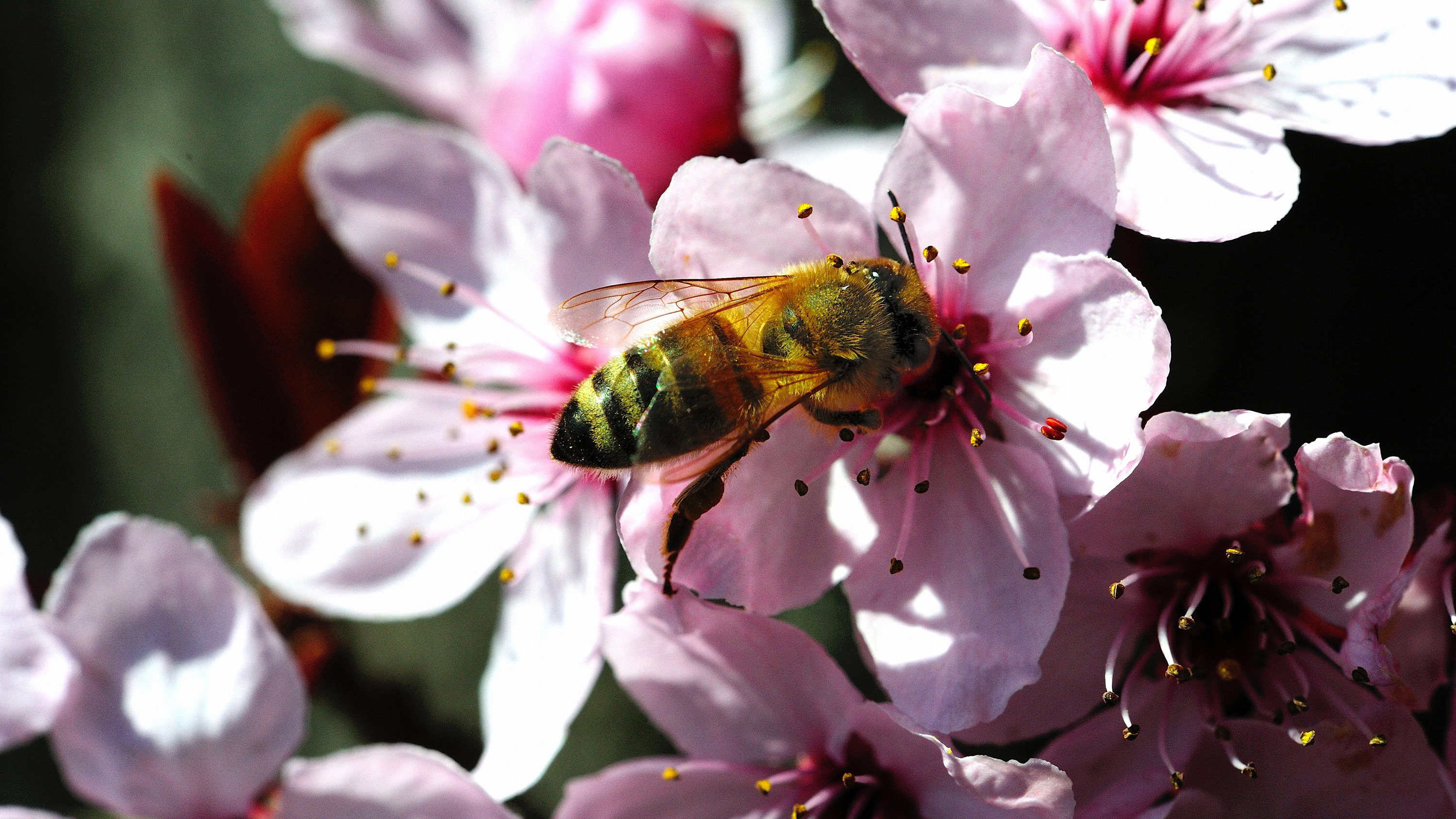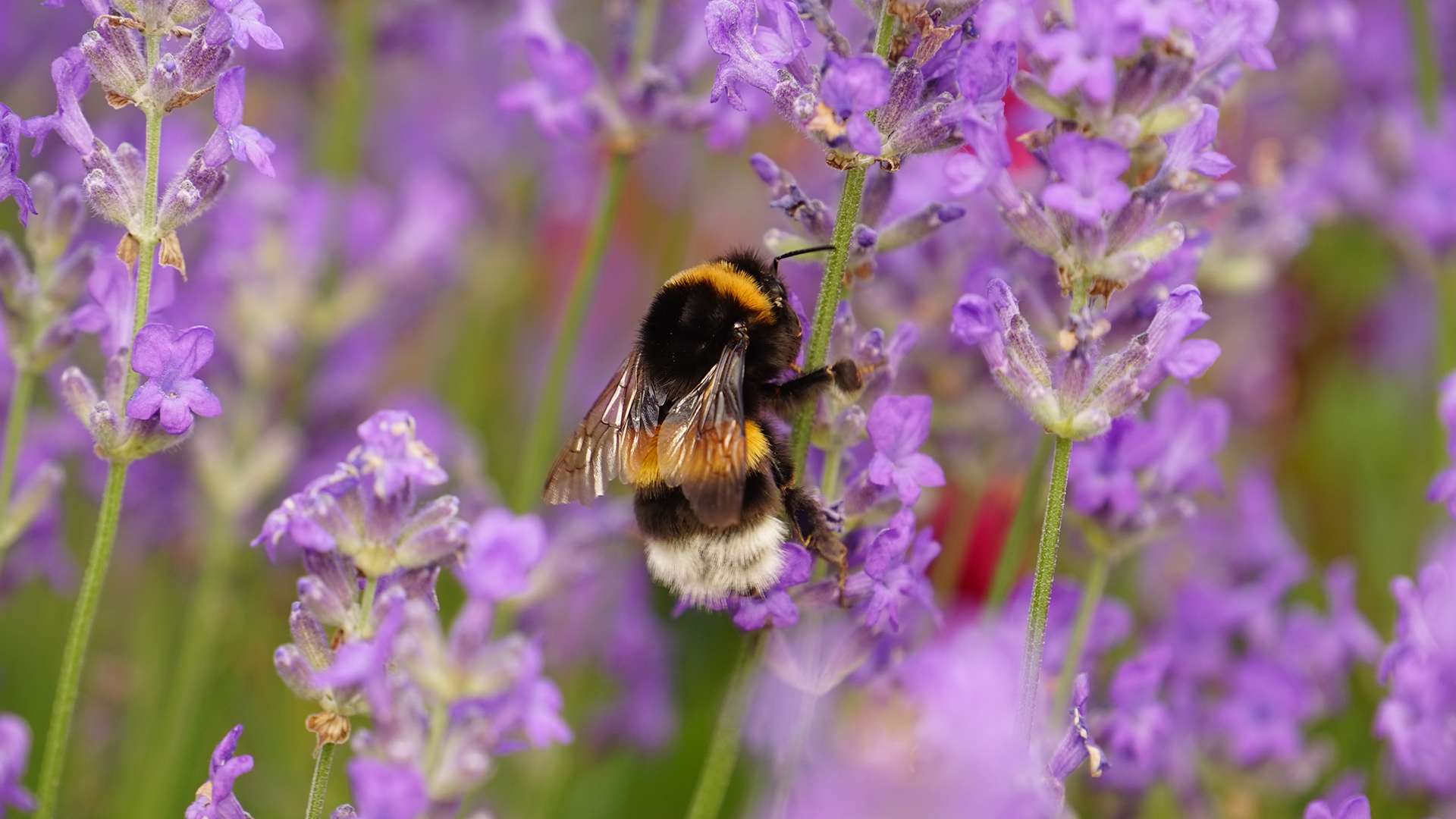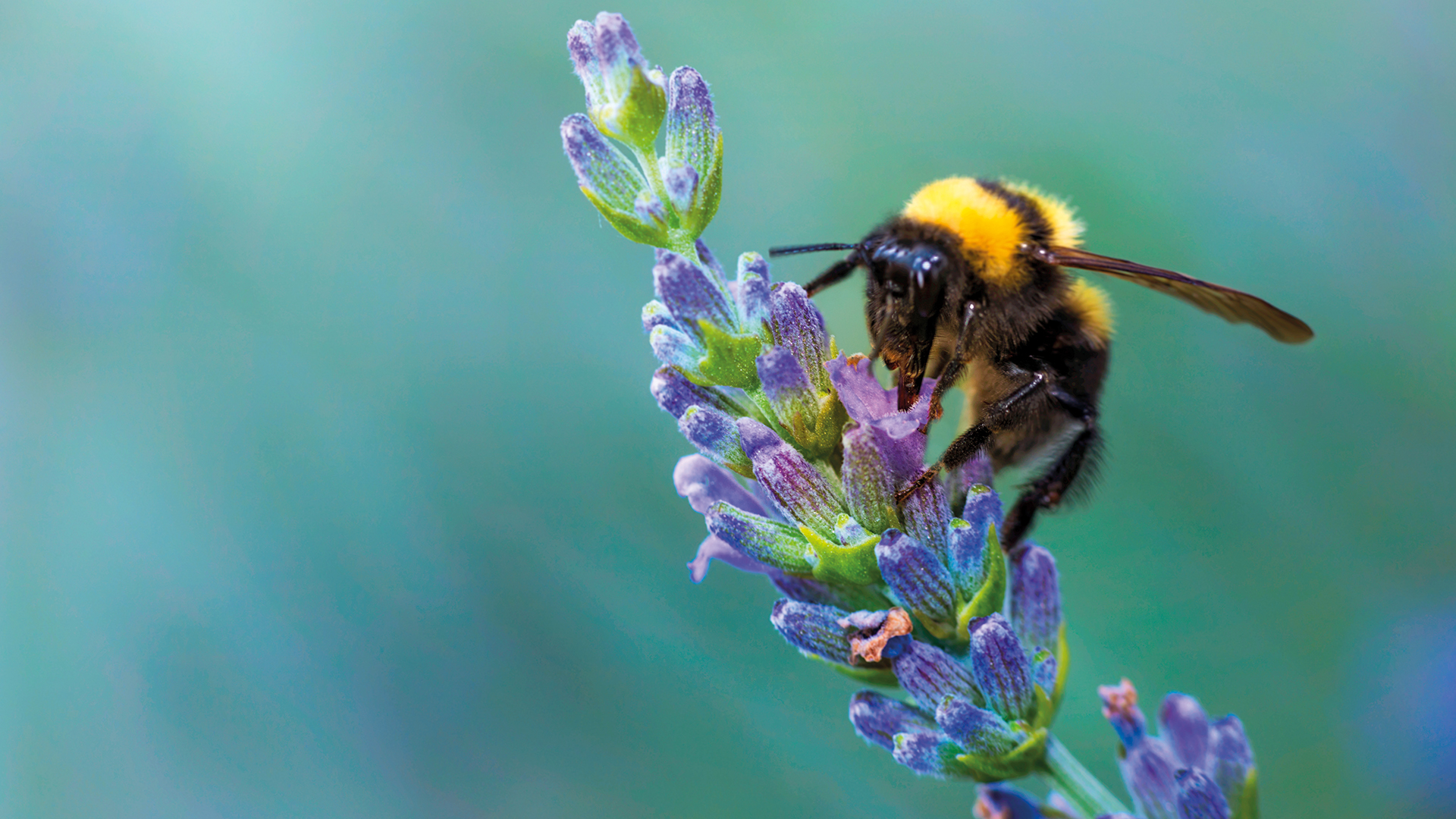British bees are in decline: help them by switching to a bee-safe pesticide
British bees needs your help, and switching to bee-safe pesticides in your garden is a great start

British bees are still in deep trouble, with numbers continuing to decline year after year. This week, bee conservationists were devastated to learn that the UK has broken its promise to maintain a ban on thiamethoxam, a pesticide that has been linked directly to the decline in key pollinator numbers since 2007. The chemical will be sprayed on sugar beet crops following an emergency authorisation.
This news is troubling to all of us: we are dependent upon bees for crop pollination and biodiversity. It's more important than ever to do everything we can to protect them, such as planting bee friendly plants, but how can you make sure the bees in your garden are safe if you grow your own and want to minimise harmful pests?

We'll be upfront and say that commercial pesticides of any make are not safe for bees. Although many claim to be 'biodegradable', all that really means is that they get absorbed into the soil, eventually. All chemical pesticides harm bees by affecting their central nervous system; the more responsible brands will sell theirs with the disclaimer that you must keep bees and wildlife away from treated areas (easier said than done).

However, there are a number of safe, natural alternatives that act as powerful pesticides without harmful bees. They are:
- Neem oil: a powerful anti-fungal and anti-viral agent, neem oil also happens to be a very effective garden pesticide that does not harm bees. However, you have to use it carefully, diluted in water at no more than three per cent concentration. Don't spray directly on flowers bees pollinate.
- Castille soap: castille soap is made from olive oil and is very effective against common pests such as aphids. Again, it should be used diluted with water (50-50 solution is fine), and it has to be real Castille made with olive oil; detergents and washing-up liquids will harm bees. Don't spray directly on flowers bees pollinate.
- Epsom salt: Epsom salt is completely safe to use around bees, and its magnesium-rich chemical profile will also help fertilise your garden plants, especially tomatoes. Just sprinkle liberally over areas affected by pests. Also works as a slug repellant.
- Garlic and onion: again, safe for bees but lethal to many garden pests, garlic and onion can be blended in a hand blender with some water, or boiled, and the water then sprayed from a spray bottle.
These are all effective, natural, and inexpensive pesticides that are safe to use around bees. If you are finding that your plants are still being attacked, you might want to reconsider where they're positioned in the garden and whether they're getting enough light and water, as healthy plants are always less pest-prone.
And, in the words of Monty Don, 'If you want to deal with pests — such as the lily beetle — without causing any other harm, simply hand-pick them and destroy them.'
Want to find out more ways to do your bit for creatures great and small? Head over to our wildlife garden ideas for more advice.
More advice:
- How to create an eco friendly garden: follow our expert tips
- The best bird feeders: keep feathered friends well fed
- How to make a bug hotel: give insects a garden home
Anna writes about interior design and gardening. Her work has appeared in Homes & Gardens, Livingetc, and many other publications. She is an experienced outdoor and indoor gardener and has a passion for growing roses and Japanese maples in her outside space.
